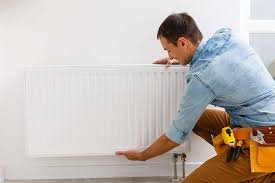Installing central heating for the first time can be a critical task, but with the proper guidance, it doesn’t have to be overwhelming. Whether you’re renovating your home or building a new one. Central heating is a crucial aspect that requires careful planning and execution while in some cases you may qualify for central heating grants offered by the government, for details about grants Click here to read in this article we’ll explore 10 essential tips to help first-time installers navigate the process smoothly. And ensure a successful central heating installation.
Assess Your Heating Needs
Before starting the installation process, take the time to plan out your central heating system thoroughly. Consider factors such as the size of your home, the number of rooms you want to heat, and your budget. Planning ahead will help you make informed decisions and avoid costly mistakes later on.
Choose the Right central heating system
Selecting the right boiler is essential for the efficient operation of your central heating system. When choosing a boiler, consider factors such as the size of your home, your hot water needs, and energy efficiency ratings. Consulting with a heating engineer can help you determine the best option for your specific requirements.
Position the Boiler Wisely
The location of your boiler is critical for optimal performance. Choose a well-ventilated area that is easily accessible for maintenance and repairs. Avoid placing the boiler in bedrooms or living spaces to minimize noise and safety concerns.
Install Thermostatic Radiator Valves (TRVs)
Thermostatic radiator valves allow you to control the temperature of individual rooms. Providing greater comfort and energy efficiency. Install TRVs on each radiator to customise heating levels according to your preferences and usage patterns.
Insulate Pipes of central heating
Proper pipe insulation is essential to prevent heat loss and maximize energy efficiency. Insulate both hot water and heating pipes to minimize heat transfer. And ensure consistent heating throughout your home. This simple step can help reduce energy bills and improve the overall performance of your central heating system.
Consider Zoning
Zoning your central heating system allows you to divide your home into separate heating zones. Each with its thermostat and controls. This enables you to heat different areas of your home independently. Providing greater comfort and energy savings. Consider zoning options when planning your central heating installation.
Bleed Radiators Regularly
Air can accumulate in your radiators over time, reducing their efficiency and causing cold spots. Bleeding your radiators regularly removes trapped air. Ensuring even heat distribution throughout your home. Make it a habit to bleed your radiators at least once a year to maintain optimal performance.
Schedule Annual Maintenance
Regular maintenance is essential to keep your heating system running smoothly. And efficiently. Schedule annual servicing with a qualified heating engineer to inspect. And tune up your boiler, radiators, and controls. This proactive approach can help identify and address any issues before they escalate. Ensuring reliable operation and prolonging the lifespan of your system.
Invest in Smart Controls
Smart thermostats and heating controls offer advanced features such as remote access, scheduling. and energy monitoring. Investing in smart controls can help you optimize your heating system for maximum comfort. And efficiency while reducing energy consumption and costs. Explore different options to find the proper smart controls for your needs and budget.
Seek Professional Advice
If you’re not sure what to do, ask heating engineers or workers. A successful central heating installation depends on getting help from experts. And finding solutions that are unique to your needs. It is very important to get professional help, especially for complicated systems like central heating.
Conclusion
To install central heating for the first time, you need to plan ahead. pay attention to details, and use the right tools. With these 10 important tips, first-time technicians can do a great job. Each tip, from picking the right boiler to scheduling regular repairs. Makes the central heating system work better, use less energy, and last longer. With the proper planning. And care, a central heating system that is well-designed and built can keep your home warm.
